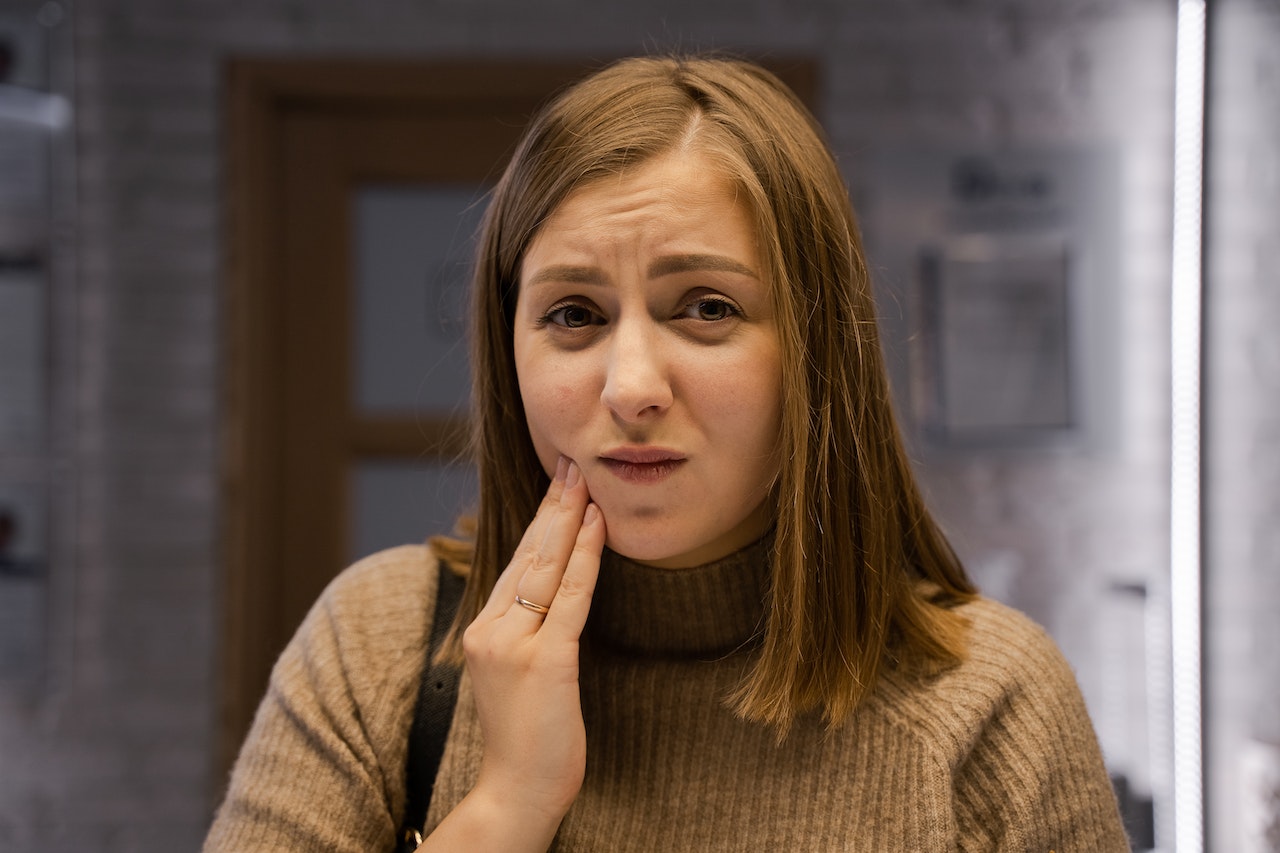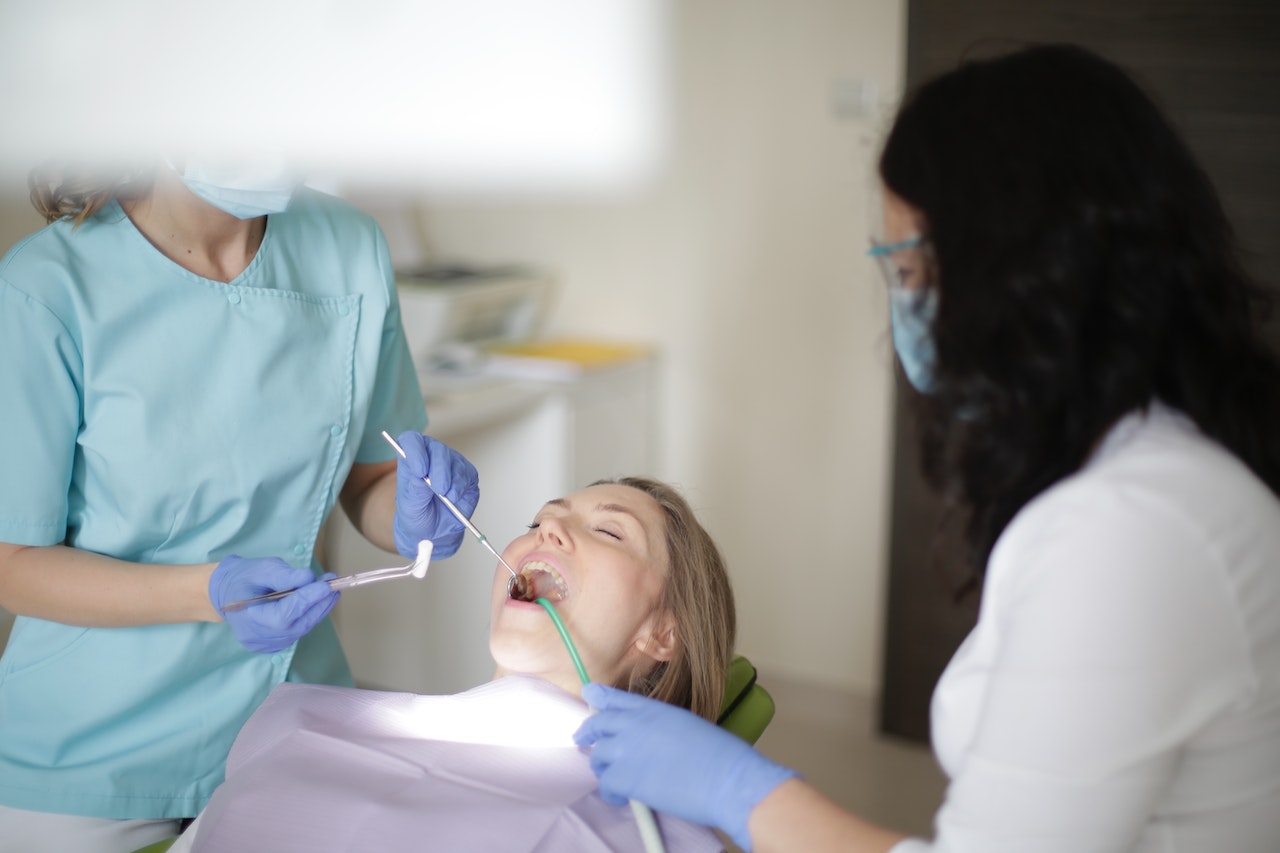Chronic bad breath, called halitosis, affects millions of Americans every year. Everyone experiences bad breath early in the morning or after a particularly garlicky meal, but the issue is more concerning if it still doesn’t go away after you brush, floss, or gargle each day. Bad breath can lead to insecurity, a lack of confidence, and self-esteem issues. The good news is that the condition is easily preventable and treated once a dentist determines the underlying cause.
If you’re suffering from bad breath despite brushing, flossing, and maintaining your oral hygiene at home, it’s time to consult a dentist to understand how you can get rid of bad breath.
The Common Causes of Bad Breath
Poor Dental Hygiene
The overwhelming majority of bad breath comes from inside the mouth. Without brushing and flossing daily (including brushing your tongue), bacteria and food particles build up in your mouth. The bacteria produce sulfur compounds that make your breath stink.
Many patients opt to treat bad breath through mints or gum, but this is a short-term solution for a recurring condition. When poor dental hygiene is the primary cause of chronic bad breath, brushing, flossing, and using mouthwash are the only ways to attack and remove the bacteria.
Corrective Devices
When using retainers, dentures, or mouthguards when sleeping, it’s important to be aware that these devices can also lead to bad breath. At our Grand Prairie office, we find that a common cause of bad breath is when these devices trap food particles on unclean teeth and lead to worsening bad breath. To ensure that your corrective devices are not causing bad breath, it’s important to clean your mouthguard or dentures regularly.
Cavities or Infection
Cavities can be detrimental to your overall oral health and also contribute to bad breath. While it’s not a direct cause, the decay pockets created by these cavities can cause bacteria to stick and escape the bristles of your toothbrush. These bacteria then feed on food particles to cause bad breath. Conditions like tonsillitis and strep throat can also be behind bad breath, and it’s critical to get treated for them before it becomes worse.
One way to get rid of bad breath is to go for a dental exam. Your dentist will prescribe corrective treatment for any cavities or infections that are causing bad breath while taking care of your overall oral health.
Dry Mouth or Dehydration
While you might not think that not drinking enough water is affecting your breath, you’d be surprised. A relatively unknown cause of bad breath is not getting enough fluids. A dry mouth can prevent food from leaving the mouth, and this can lead bacteria to feed upon it.
Saliva and water wash away both bacteria and food particles, preventing sulfur compounds from forming in the mouth. Saliva also contains enzymes that can break down food and reduce odor-causing bacteria. The antibacterial properties of saliva also help by eradicating harmful bacteria and infections.
Other Possible Causes of Bad Breath
- Gum disease
- Acid reflux
- Diabetes
- Digestive issues
- Prior medical issues like liver disease, respiratory tract infections, and gastrointestinal infections
- Tonsil stones
- Medications used to treat blood pressure or diabetes, leading to dry mouth and bad breath
How to Get Rid of Bad Breath
- Avoid all kinds of smoking and tobacco products
- Brush and floss at least two times a day
- Drink plenty of fluids to stay hydrated
- Regularly clean oral corrective devices like dentures and retainers
- Use a tongue scraper daily to remove bacteria
- Use an antimicrobial rinse daily
- Get regular dental health check-ups
Looking to Get Rid of Bad Breath? We Can Help
Sometimes, knowing the causes of bad breath isn’t enough to get rid of it. While there are many solutions to resolve bad breath, an expert dentist can tell you which one is the right one for your needs. At Definitive Dental, we pride ourselves on taking exceptional care of each patient by customizing services for their needs. We provide a thorough dental exam that can help identify the cause behind your bad breath.
We also provide family dentistry and cosmetic dentistry to help you achieve optimal oral health while ensuring that you have the best smile around. Book an appointment with us today to take your smile to new heights!
Contact us today by filling out our contact form or giving us a call at (972) 646-0660.




